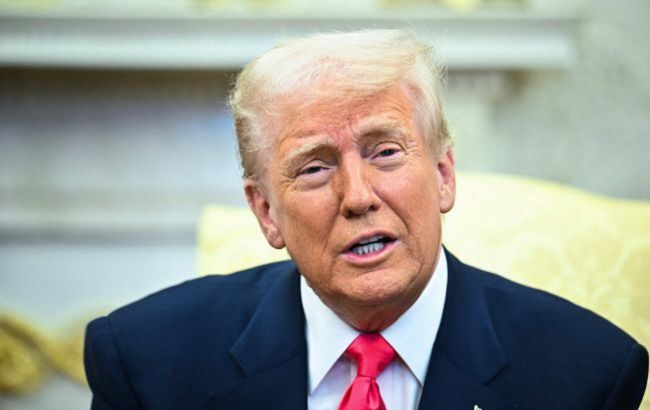Confrontation eases - US and Mexico sign two key agreements
 Photo: Donald Trump, President of the United States (Getty Images)
Photo: Donald Trump, President of the United States (Getty Images)
The United States and Mexico concluded two key agricultural agreements, easing tensions in trade relations amid the Trump administration’s tariff policies, according to Bloomberg.
According to the agreements, Mexico has committed to supplying water to Texas farmers following US complaints about non-compliance with a long-term agreement.
Additionally, the parties agreed to joint efforts to combat the New Zealand screw-worm, a cattle pest, on Mexican territory, which helped avoid potential restrictions on the import of American cattle.
These agreements reflect Mexico’s desire to cooperate with the US, despite the tougher stance of the Trump administration. This is a positive signal for Mexico, which aims to have tariffs on auto parts, steel, and other goods lifted.
According to a statement from the U.S. Department of Agriculture, the Mexican government agreed to transfer water from international reservoirs and increase the US share in the flow of six tributaries of the Rio Grande by the end of the current five-year water cycle, which ends on October 24 of this year. The agreement is based on the provisions of the 1944 Water Treaty, according to which Mexico is required to provide the US with 1.75 million acre-feet of water over five years, while the US supplies 1.5 million acre-feet of water to Mexico from the Colorado River. The exact amounts for short-term water supplies are not yet known.
The Mexican Ministry of Agriculture stated that the country agreed to an immediate transfer of water, as well as additional supplies during the next rainy season to prevent a potential shortage at the end of the water cycle. The ministry also emphasized that renegotiating the 1944 Water Treaty is not considered necessary, as its provisions are beneficial to both sides.
Regarding the fight against the New Zealand screw-worm, both parties reported reaching a separate agreement, the details of which have not been disclosed. Earlier, US Agriculture Secretary Brooke Rollins had warned about the possible reinstatement of restrictions on cattle imports if insufficient measures were taken to combat the pest, which poses a threat to the cattle population.
Rollins stated that during a working visit to Ohio, she held talks with Mexican Agriculture Minister Julio Berdegué, resulting in an agreement on joint actions in this regard. Berdegué, in a post on platform X, stated that the parties had agreed on measures that align with the interests of both countries and are aimed at controlling and eradicating the pest.
Policy of avoiding confrontation
In November last year, the US Department of Agriculture temporarily suspended the import of cattle from Mexico after a case of infection was detected in the state of Chiapas. The import was resumed in January.
Mexican President Claudia Sheinbaum adheres to a policy of avoiding confrontation with the Trump administration, calling for a "cool-headed" approach to resolving bilateral trade issues, including through direct phone negotiations. Thanks to this tactic, Mexico was able to achieve a partial lifting of tariffs.
Despite certain concessions, Mexico continues to face tariffs on goods not covered by the North American Free Trade Agreement (NAFTA), as well as on steel, aluminum, and specific categories of automobiles.
The Sheinbaum government expresses confidence in the possibility of further tariff reductions and a successful review of the agreement between the US, Mexico, and Canada, scheduled for next year, although negotiations may start earlier.
Trump’s tariffs for Mexico
In early February, the Trump administration imposed a 25% tariff on imports from Canada and Mexico. The decision was made in the fight against drug cartels and the spread of fentanyl.
On March 4, the tariffs came into effect, but Trump again postponed them for one month for Mexico.

